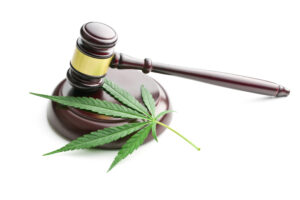On January 1, 2018, the State of California begins a new chapter regarding marijuana. The drug is legal to use for adults over the age of 21 after the holiday season comes to an end. The change in legality may not seem like a big deal, after all, a medical marijuana program has been in place for two decades. California became the first state to allow doctors to recommend cannabis for specific health conditions in 1996. However, broad legalization for recreational purposes could create problems for some people, especially those in recovery.
Cannabis use laws in California are of particular interest to us at PACE Recovery Center—with our specialty being addiction treatment. We are aware that young adult males are a demographic long associated with high marijuana use. Legalization could have the unintended effect of encouraging people in recovery to think that a little “pot” use is harmless. People without a history of cannabis misuse may convince themselves that the drug will not be a sobriety breach.
It’s entirely vital that those in recovery from any form of addiction understand the inherent dangers of using marijuana. Just because your drug of choice (DOC) is alcohol, doesn’t mean that cannabis is fair game. Many an alcoholic has experienced a full-blown relapse because they thought of a little weed smoke as harmless. It’s not just people with alcohol use disorders, either; hard drug users often scoff at the addictive nature of weed. True, fewer people reach the depths of despair from cannabis use, compared to other “harder” drugs. Nevertheless, such realities don’t imply the drug is safe.
Recovery Work Going Up In Smoke
Smoking pot is a sure way for people in recovery to find themselves returning to their DOC. If you’re regularly attending 12 Steps meetings, then there is good chance you have heard where cannabis use leads. It doesn’t matter which substance precipitated requiring addiction treatment; no mind-altering drug is safe. Addiction is a severe mental health disorder, and substance use is merely a symptom of the overall condition. Introducing any euphoria-producing drug to your body can cause severe problems in your life, and jeopardize your recovery program.
Whether you have 30 days or 30 years sober, you’ve have invested much into turning your life around. Using marijuana will cause all your hard work in recovery to go up in smoke. Legality shouldn’t impact your decision to partake in cannabis use; mental health pays no mind to the laws of man. Case in point: despite alcohol’s legality, the substance is highly addictive and takes more lives than any other vice. In spite of marijuana’s benign nature, use can lead to dependence, addiction, and other health problems.
People in recovery who decide to use THC (Δ⁹-tetrahydrocannabinol) products are at even higher risk of experiencing problems. More times than not, recovering addicts and alcoholics return to their drug of choice after using cannabis. It may not happen right away, but smoking weed will cause the minds of people with use disorders to crave their DOC. Usually, it’s a question of when, not if, regarding a return to more dangerous mind-altering chemicals.
Ask Around
If you’re still relatively new to recovery or fresh out of addiction treatment, we hope you grasp what’s at stake. Getting to where you are today required tremendous courage and even more effort, breaking the cycle of addiction wasn’t an accident. If you are living in California, some of your peers may be excited about the “green tide” coming into port. If they are not in recovery, using marijuana is their prerogative; if they’re in the program, keep your distance.
People in recovery contemplating using the drug come January should consult others with more recovery time, first. Chances are, such people will share relapse horror stories that began with something innocuous like cannabis, like cases when a little bit of pot resulted in a drug of choice relapse. Your older peers may tell you of former members who never made it back to the program after using marijuana.
Please remind yourself of what you learned while in addiction treatment. For starters, yours is an incurable disease! Without continued spiritual maintenance and steadfast dedication to total abstinence, everything you’ve tirelessly worked for could disappear. While relapse is a part of many people’s story, there are no guarantees of making it back to the rooms. Anything you can do to protect your recovery’s survival, the better; avoiding marijuana falls on the list of such things.
Cannabis Addiction Treatment
Again, young adult males use marijuana more than any other demographic. As a result, such people often find themselves in the grip of cannabis use disorder and require assistance. If your life is unmanageable due to marijuana use, please contact PACE Recovery Center. We specialize in the treating young adult males with substance use disorders. Our experienced team can help you break the cycle of addiction and self-defeating behavior. Life in recovery is possible; we can give you the tools to make it a reality.



